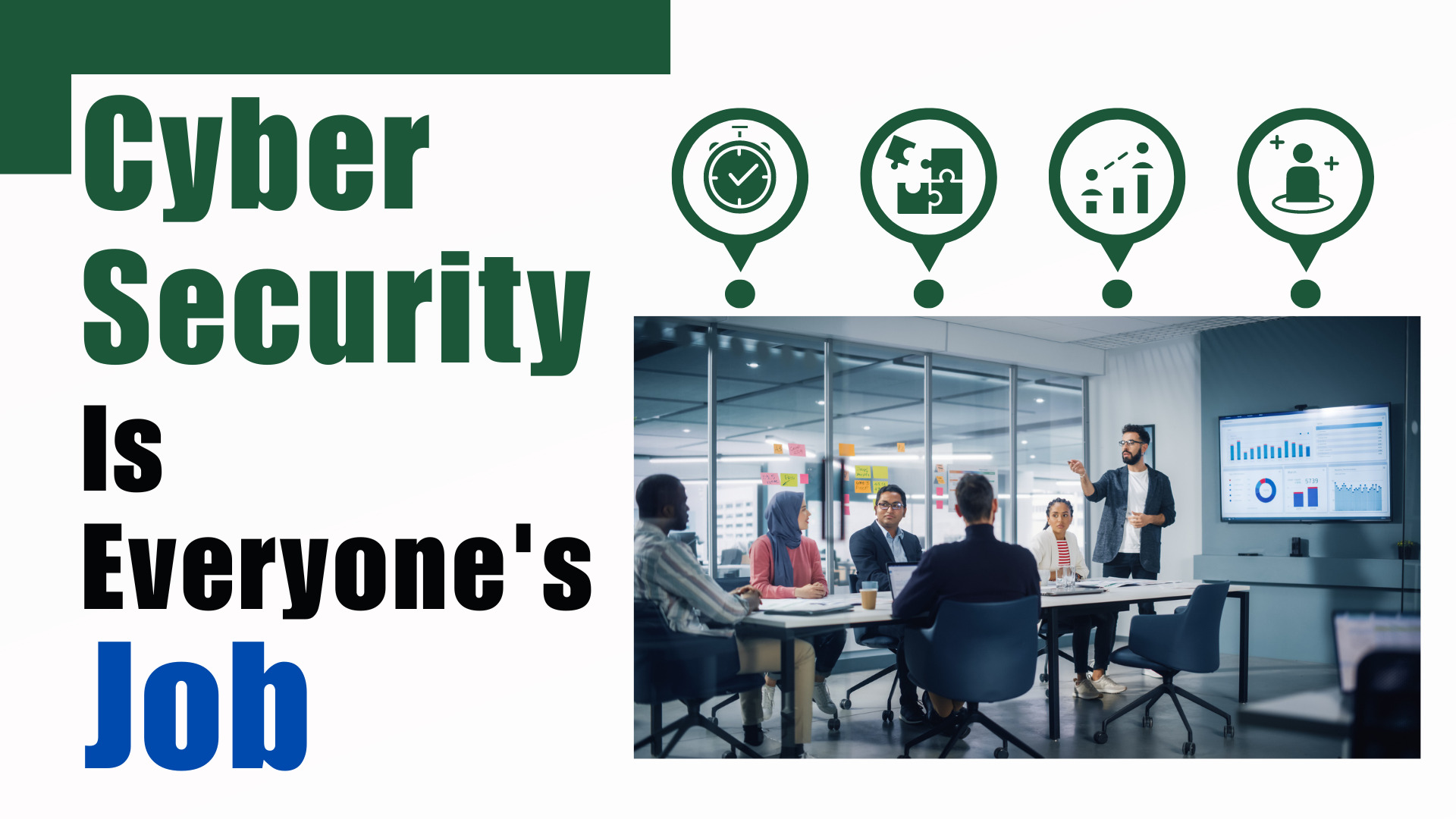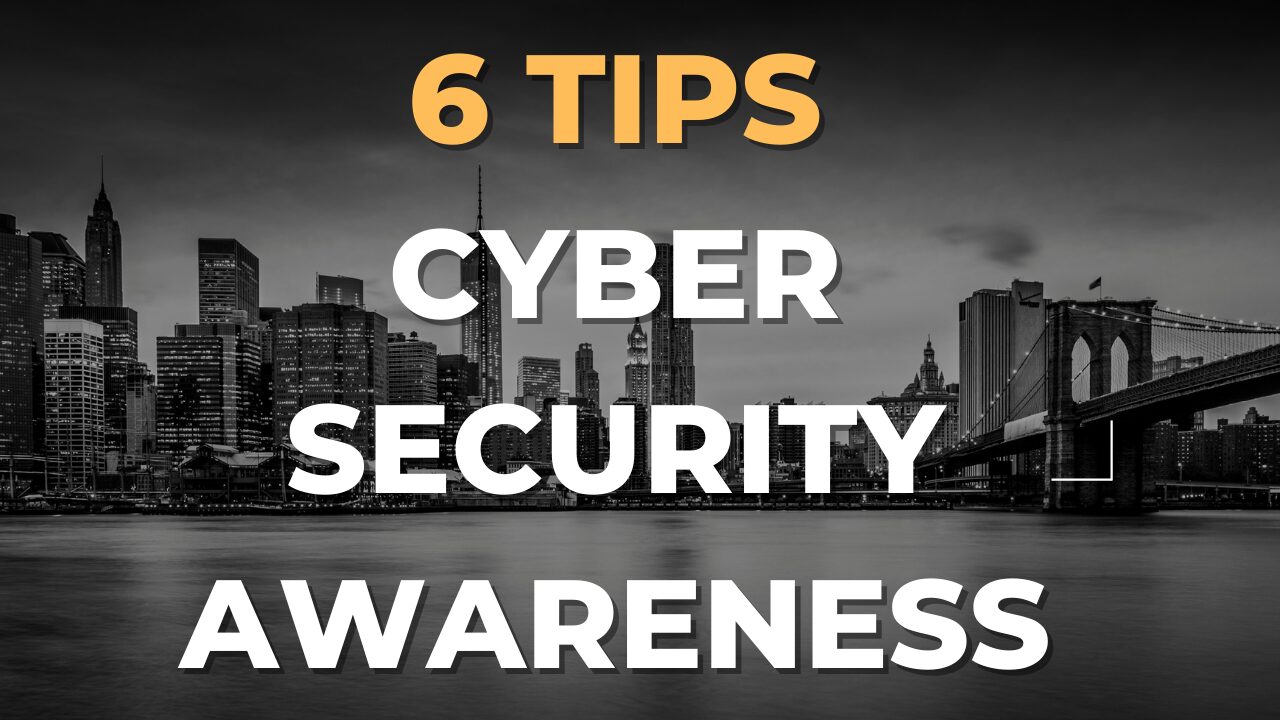Why Cybersecurity Is Everyone’s Job: Beyond the IT Department
Cybersecurity has gained immense importance for businesses and individuals in today’s digital era. It’s crucial to understand that protecting sensitive data and systems is not solely the responsibility of your IT department. Instead, it’s a collective effort that involves everyone within an organization – from top-level executives to entry-level employees.
Cyber threats are constantly evolving, and attackers are using sophisticated methods to breach networks, making it even more necessary for everyone to be proactive in maintaining a solid security posture. Businesses can significantly reduce the risk of being compromised by ensuring that every team member is informed and vigilant.
Key Takeaways
- Cybersecurity should be a collective responsibility within an organization
- Staying informed and vigilant helps protect sensitive data and systems
- A strong security posture helps in reducing the risk of cyber threats
The Importance of Cybersecurity for Everyone
Increasing Cyber Threats
In today’s digitally connected world, cyber threats are on the rise. As a user, you must be aware of the risks you face when using the internet. Cyber attackers use phishing, ransomware, and social engineering techniques to gain unauthorized access to your personal information. Understanding these threats and taking preventive measures can create a safer online environment.
- Stay informed about the latest cyber threats and their potential impacts.
- Enable automated device updates to ensure you have the most recent security patches.
- Use strong, unique passwords for your online accounts and change them regularly.
Cost of Data Breaches
Data breaches can have significant financial and reputational consequences, not only for organizations but also for individuals. Personal data can be compromised when a breach occurs, and sensitive information could fall into the wrong hands. You can play a crucial role in preventing data breaches as a user.
- Be cautious when providing your personal information online.
- Learn to identify suspicious emails or messages and avoid clicking on unknown links.
- When using public Wi-Fi, ensure you connect to a secure network and avoid accessing sensitive information.
Remember, cybersecurity is not just the responsibility of your IT department but of every single user. By actively participating in and promoting cybersecurity best practices, you’re helping to create a more secure digital environment for everyone.

Roles and Responsibilities in Cybersecurity
Management and Executives
As a management or executive team member, you play a crucial role in setting the tone for your organization’s cybersecurity efforts. You are responsible for establishing and maintaining a strong security culture, developing policies and procedures, and allocating resources for cybersecurity initiatives. Ensure that:
- Proper security policies and procedures are in place and communicated to employees
- Employees receive regular training on best practices for cybersecurity
- Cybersecurity is considered in strategic decision-making and budget allocations
- Breach response plans are developed and updated regularly
Employees
Every employee plays a vital role in protecting the organization against cyber threats. As an employee, you should:
- Adhere to company policies and guidelines on cybersecurity practices
- Keep software and devices up-to-date and install necessary security patches
- Be cautious with email attachments, links, and downloads, verifying their authenticity before interacting
- Securely store sensitive information and report security concerns to the IT department
- Participate in cybersecurity training and stay informed about emerging threats
IT Department
The IT department primarily protects the organization’s digital assets from cyberattacks. Key responsibilities include:
- Designing, implementing, and monitoring security systems to protect sensitive data
- Regularly testing and assessing the organization’s vulnerabilities
- Providing support and guidance to employees regarding cybersecurity practices
- Staying up-to-date on cyber threats and industry best practices to defend against them
- Responding to and investigating security incidents, as well as mitigating their impact
Raising Cybersecurity Awareness
Security Training Programs
Regular security training programs can equip you and your team with vital knowledge to protect your organization from cyber threats. Participating in these programs teaches you about potential risks, how to identify and respond to them, and the importance of following best practices. These programs often include real-life examples, simulations, and assessments, ensuring you’re well-prepared to handle various cybersecurity challenges.
Enforcing Security Policies
Enforcing security policies throughout your organization is crucial in maintaining a strong cybersecurity posture. You should ensure everyone understands and adheres to these policies, regardless of their role or department. Regularly review and update your policies to stay current with the evolving threat landscape. As a part of enforcing security policies, consider implementing the following measures:
- Access control: Limit access to sensitive information to those who genuinely need it.
- Password management: Use strong, unique passwords and encourage periodic password changes.
- Software updates: Keep your devices and software updated with the latest security patches.
- Data protection: Implement backup systems and encrypt sensitive data to prevent unauthorized access.
- Incident reporting: Establish clear guidelines for efficiently reporting and handling suspected security incidents.
By actively engaging in training programs and enforcing robust security policies, you can foster a culture of cybersecurity awareness throughout your organization. This, in turn, can minimize the risk of cyberattacks and help maintain the integrity of your organization’s data, assets, and reputation.
Collaborative Cybersecurity Measures
Implementing Access Controls
You must implement proper access controls within your organization to ensure a secure environment. Access controls help limit who can access sensitive information and minimize the risk of unauthorized people gaining access. Start by defining different employee access levels based on their specific job roles. This can involve setting up user accounts with appropriate permissions and using multi-factor authentication to verify users’ identities. Always keep track of employee role changes and update their access accordingly.
Regular Security Assessments
Regular security assessments are another vital responsibility for everyone in the organization, not just the IT department. Take the initiative to periodically review your security protocols, check for software updates, and ensure that all devices are protected with up-to-date antivirus software. Additionally, ensure your employees know the importance of these assessments and provide them with the necessary training to recognize potential threats. This proactive approach can help your organization detect vulnerabilities early and address them effectively before cybercriminals can exploit them.







